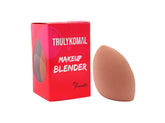THE ROLE OF ZINC IN PROTECTING THE SKIN FROM THE SUN.
WHAT IS ZINC.
One very important skincare ingredient that we seldom talk about is Zinc! As one of the essential nutrients produced within the body, zinc has several benefits, both internal as well as external. When used internally, it boosts the immune system and metabolism function. When applied topically, it has various benefits for the skin.
HOW IS ZINC BENEFICIAL TO THE SKIN?
The main role of zinc is to protect and shield the skin. As it has very large, insoluble particles, Zinc does not penetrate through the skin cell wall. It stays on the surface until it is washed or removed. When applied to the skin, zinc forms a barrier on the surface. Not only does this barrier, effectively shield the skin against environmental elements, pollution, and sunlight; it also locks moisture within the skin. Topical application of zinc thus keeps your skin protected and hydrated.
ZINC AND SUN BLOCK.
Most sunblocks include Zinc as an active ingredient. As discussed earlier, Zinc acts as a protective barrier for the skin. This barrier works wonders to protect the skin from the sun. Its unique property is that it effectively blocks all parts of the UV spectrum, including ultraviolet A (UVA) as well as B (UVB) radiation.
The best thing about zinc is that it is very gentle on the skin, and in most cases, does not cause skin irritation.
By filtering the harmful UV rays, protects the skin cells from damage, slows down the aging process, and prevents skin dryness.
HOW ARE ZINC SUNSCREENS DIFFERENT THAN OTHER SUNSCREENS?
Sunblocks with zinc are also called physical sunscreens as they physically block the sun rays by scattering them. Sunblocks that include zinc do not need any other active sun-protecting ingredient.
Mentioned below are some of the advantages of using a Zinc based Sunblock
• It prevents sunburn and premature aging of the skin.
• It fades dark spots.
• It whitens the skin.
• It heals melasma and dark spots.
• It prevents the skin from getting dark.
• It rarely causes skin irritation.
• It can be used on any skin type, especially sensitive skin.
• It does not cause breakouts or acne.



